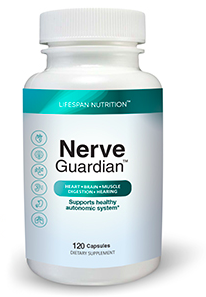Bill Sardi Health Blog
-
Is Nerve Pain Contagious?
10-03-2023 by David Stouder
I will begin by stating that nerve pain is NOT contagious, and confess to using a provocative title to peak your interest. And while nerve pain may not be contagious, the steady rise of this category of complaints makes one wonder what is going on. Here is a brief quote from Pubmed.gov: “Multiple causes of neuropathic pain have been described and its incidence is likely to increase owing to the ageing global population, increased incidence of diabetes mellitus and improved survival from cancer after chemotherapy.”
Certainly some nerve pain is attributed to injury, repetitive stress, sciatica, etc. But is the rise in these problems due to an actual increase in injuries, or is something changing in the nerves as well?
We can look at ageing in a similar manner. We can document increases in nerve pain issues as we age. But I ask the same question: is something changing in the nerves as well?
A degradation in nerve health is an adverse effect of certain medications. Why are so many more people succumbing to experiencing these effects?
With Diabetes on the rise, we are definitely seeing more reports of Diabetic Neuropathy. We should understand that the consequences of unstable blood sugar can produce “symptoms” long before one qualifies for an official diagnosis. I talk to people all of the time who complain of neuropathy related pain. When I suggest that it might be related to blood sugar, they often assure me that they are not Diabetic. Something else is occurring besides the reasons in the above quote, and Bill Sardi had his finger on the pulse. Let me explain.
All of the above drivers of nerve pain intersect at a fascinating nutritional vector: Vitamin B1. While very few of us get Beriberi (the clinical Vitamin B1 deficiency disease), there are many reasons why most of us do not have optimal levels of Vitamin B1. Keep in mind that a high-carb diet, alcohol consumption, coffee, tea, as well as pesticides deplete Vitamin B1. The Vitamin B1 levels typically found in many foods are being steadily compromised by our conventional farming methods.
Perhaps you experience nerve pain and you may assume that this information doesn’t apply to you because you have Vitamin B1 in your Multi-Vitamin or B-Complex supplement. Most multi-vitamins do not have therapeutic levels of Vitamin B1 (Thiamine), and very few have the form of Vitamin B1 studied to be effective in supporting health nerve function: Benfotiamine.
Bill Sardi was the first person to bring Benfotiamine to my attention. The emerging research indicated that this form of Vitamin B1 supported healthy blood sugar, protected the kidneys, and supported the management of nerve discomfort. I ordered a few bottles to add to my store’s inventory but, since few people had ever heard of Benfotiamine, it sat on the shelf unnoticed.
That changed when I got a visit from Dr. Joe Prendergast (Stanford University, M.D., and Endocrinologist). He had just attended an Endocrinology conference in Southern California where he saw a presentation from an Endocrinologist who focused on treating diabetics. The presenter was using Benfotiamine clinically and having over a 90% success rate in resolving Neuropathy!
As Dr. Prendergast began suggesting Benfotiamine to his patients, he too had similar results. Soon, my store had an entire shelf devoted to Benfotiamine to keep up with the demand.
Benfotiamine renders results as a stand-alone nutrient, but has broader benefits if combined with other nutritional factors. I refer you to the supplement facts panel of Bill Sardi’s innovative formula Nerve Guardian:
Supplement Facts Serving Size 1 capsule
Servings per container 120Amount per Serving % Daily Value Vitamin B3 (as Niacinamide) 15 mg 94% Vitamin B12 (as Methylcobalamin) 1000 mcg 41667% Vitamin C (as Ascorbic Acid) 500 mg 556% Vitamin D (as Cholecalciferol) 100 mcg 500% Benfotiamine 10 mg † Inositol 150 mg † † Daily Value not established. Inositol is a B-Vitamin factor that plays a role in many physiological functions. It is a Lipotropic (helps the Liver metabolize fats), aids in the sleep process, and supports nerve health. Here is a quote form a study from The National Library of Medicine: “… myo-Inositol may be valuable in the treatment of diabetic neuropathy.”
When we examine the other supporting cast of natural molecules, we can clearly see the wisdom in this formula. Niacinamide is the non-flushing form of Vitamin B3 which plays a role in blood sugar management, blood sugar being one of the main drivers of Neuropathy.
Methylcobalamin, the active form of Vitamin B12, is often insufficient in our older population and people on primarily plant-based diets. Low Vitamin B12 means poor nerve function.
Not only is Vitamin C a fundamental anti-oxidant that mediates free radical damage, another driver of nerve pain, but adequate levels of this water-soluble nutrient also supports stable blood sugar levels.
As for Vitamin D3, it would be difficult to find a health concern where this versatile seco-hormone doesn’t offer benefits. The afore mentioned Dr. Prendergast put Vitamin D3 at the top of his list for his Diabetic patients.
Bill Sardi’s Nerve Guardian comes in a 120 capsule (4 month supply) for only $25.95! This gives you plenty of time to experience the benefits. If you click here, you can take advantage of a Buy One – Get One Free special. This brings the price down to only $3.24 per month.
While there are prescribed medications for nerve issues, they are not without the possibility of significant adverse effects. Why not give Mother Nature a chance? She is eminently more friendly than Big Pharma.
Nerve Guardian: another reason why Bill Sardi was an icon in the Natural Foods movement.

